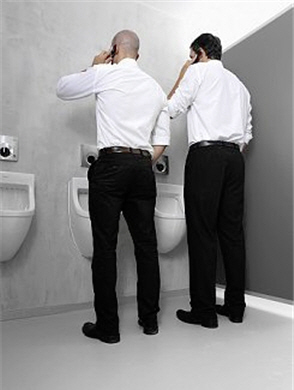 Engineering is increasingly focused on the idea of one water - a holistic view of water, wastewater, stormwater, etc. Viewing our water infrastructure as one system allows for greater efficiency and sustainability insights. Water is water will be an important management philosophy this century as we tackle climate change and sustainability concerns.
Engineering is increasingly focused on the idea of one water - a holistic view of water, wastewater, stormwater, etc. Viewing our water infrastructure as one system allows for greater efficiency and sustainability insights. Water is water will be an important management philosophy this century as we tackle climate change and sustainability concerns.
But at the same time water is viewed in the singular, wastewater is increasingly viewed as a plural. Wastewater has a great many recoverable resources, urine is a perfect example, that can and should be thought of separately in a more decentralized manner. Wastewater is not wastewater - wastewater is urine, nutrients, energy, etc. that should be viewed separately. Can they be utilized separately at decentralized locations? Can we take advantage of the "power" of urine in the coming decades? How do we separate our "combined thinking" when it comes to taking advantage of the resources embedded in wastewater.
The BBC recently covered the potential of "Pee Power" - - powering your smart phone with a smart toilet by the ultimate renewal resource - - urine. From the article:
"Today, over seven billion people populate our planet, which means on average around 10.5 billion litres (2.8 billion gallons) of human urine is produced and wasted each day. It’s the equivalent of 4,200 Olympic-sized swimming pools, if anyone was counting. In fact, some scientists are – and if they have their way, our human waste will be wasted no more.
With around one-seventh of the population lacking access to basic electricity, and as our global supply of oil slowly dwindles and coal continues to add to mounting greenhouse gases, scientists have rushed to find solutions to power the world in more renewable and sustainable ways. One answer could lie in methods being developed to generate power from perhaps an unlikely source.
Last year, a group of researchers at Bristol Robotics Laboratory in the UK proved they could power a mobile phone with human urine. Their device uses what’s known as microbial fuel cells, or MFCs, to generate enough energy for a smartphone to text, browse the internet and make short phone calls. But they believe, in time, it could eventually help power houses, buildings, and maybe even entire off-grid villages.
A microbial fuel cell is essentially an energy converter, which uses bacteria found in nature to breakdown organic matter, and in turn produce electrons that are converted into energy. It’s a self-renewing system, because the more waste the microbes eat, the more energy the system can generate and for longer.
MFCs hold such promise because they are currently one of the most efficient means of converting waste to energy. According to Ani Vallabhaneni, co-founder of Sanergy, a start-up that converts human waste to energy and fertiliser in Kenya’s slums, common biogas digesters (which convert waste into mostly methane gas) are around 35% efficient in terms of capturing energy inside the waste. It’s claimed MFCs have upwards of 85% efficiency."
No comments:
Post a Comment
Note: Only a member of this blog may post a comment.